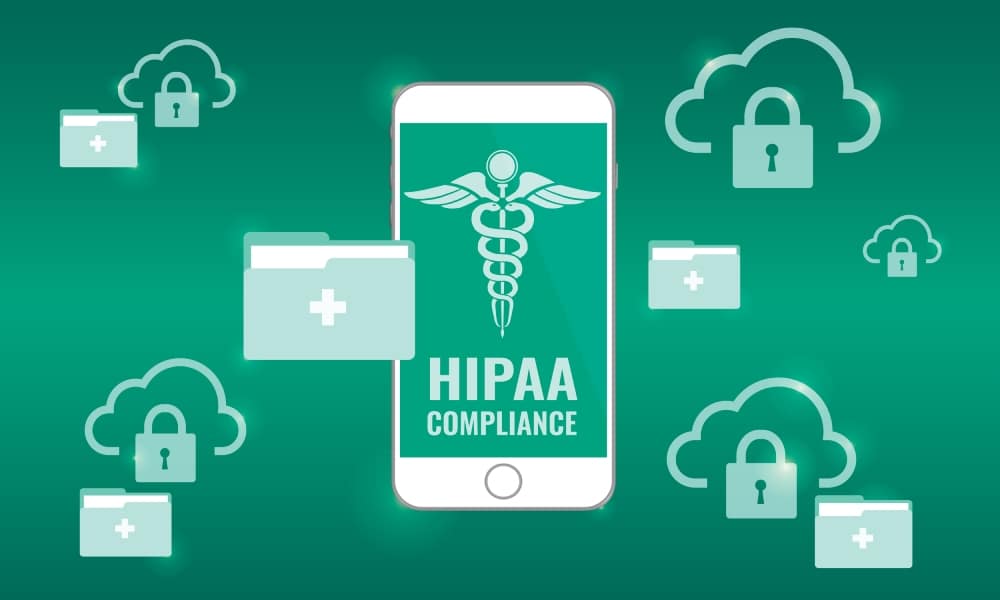In the last decade, HIPAA compliance has been on the lips of every dental professional. HIPAA compliance regulations are getting stricter each year, and fines for violations can be devastating. Therefore, it’s essential for you to understand HIPAA regulations and how they apply to the services offered by your dental startup.
At Erickson Dental Technologies, HIPAA compliance is our top priority. We provide HIPAA-compliant HIPAA software to dental startups, and we work with consultants familiar with dental HIPAA compliance to ensure that HIPAA is fully enforced.
We’ll explain dental HIPAA compliance in its entirety, answer any questions you may have about HIPAA, and help your startup abide by HIPAA regulations.
What Is HIPAA?
The Health Insurance Portability and Accountability Act (HIPAA) is a federal law that was created in 1996 to create better security for patients’ protected health information (PHI). HIPAA’s compliance rules apply to covered entities, such as:
- Healthcare providers
- Health plans
- Healthcare clearinghouses
HIPAA also applies to the business associates of HIPAA-covered entities, including dental startups. HIPAA requires regulated entities to implement HIPAA administrative, physical, and technical safeguards that reasonably and appropriately protect health information from any impermissible uses or disclosures. HIPAA also requires covered entities to comply with the following rules:
HIPAA Security Rule

The HIPAA security rule establishes national standards for the security of electronically protected health information and sets requirements for compliance. Covered entities must do a security risk analysis and develop a security plan based on the HIPAA Security Rule guidelines. HIPAA also requires covered entities to properly train employees on HIPAA privacy and security policies and regularly monitor their dental HIPAA compliance.
HIPAA Privacy Rule
HIPAA’s Privacy Rule regulates the use and disclosure of HIPAA-protected health information (PHI). The provisions for this rule are as follows:
- It requires HIPAA-covered entities to give patients a notice of HIPAA and its privacy practices.
- It provides patients with certain rights over their health information, including the right to receive an accounting of disclosures for specific purposes.
- It prohibits most uses and disclosures of PHI without authorization.
- It allows covered entities to share PHI with business associates as long as they enter into a HIPAA contract that requires the business associate to protect covered information.
HIPAA Omnibus Rule
The HIPAA Omnibus Rule is an update to HIPAA and its privacy and security regulations. Covered entities must:
- Give patients notice of HIPAA and their rights under HIPAA
- Provide patients with certain rights over their PHI, including the right to receive an accounting of disclosures
- Allow proper access, amendment, and restriction of PHI
- Limit most HIPAA disclosures without authorization
The HIPAA Omnibus Rule strengthens HIPAA enforcement by imposing higher civil monetary penalties on HIPAA-covered entities that violate HIPAA’s privacy and security rules, including breaches of unsecured PHI.
HIPAA Breach Notification Rule
The breach of notification rule requires HIPAA-covered entities to provide notice of breach of unsecured PHI to affected individuals, Health and Human Services (HHS), and, if possible, to the media. It defines a HIPAA breach as the acquisition, access, use, or disclosure of PHI in a manner not permitted under HIPAA, which compromises the security or privacy of PHI.
The rule sets out notification guidelines for HIPAA-covered entities in the event of HIPAA breaches, including the timing, content, and method of notification. It also provides exceptions to HIPAA breach notification requirements.
Why Is Dental HIPAA Compliance Important?
HIPAA compliance is essential because covered entities (e.g., doctor’s offices, clinics, hospitals, pharmacies, insurance companies) must follow HIPAA requirements to avoid penalties. HIPAA violations occur when HIPAA covered entities deny patients access to their health information or fail to provide HIPAA notice of privacy practices.
If a HIPAA violation occurs, the patient may file a complaint with the Office for Civil Rights (OCR) office. Penalties are determined on a case-by-case basis, but HIPAA violations may result in enforcement actions that can lead to fines of up to $1.5 million per violation.
Costs Associated With Compliance
HIPAA compliance is typically expensive because it requires covered entities to develop HIPAA plans, implement HIPAA policies and procedures, train employees on HIPAA, and hire HIPAA compliance experts. It also causes covered entities to spend more on technology to manage breaches.
HIPAA actions may require covered entities to hire lawyers and auditors. HIPAA compliance also impacts covered entities with related insurance. HIPAA compliance can be a significant hurdle for HIPAA-covered entities, especially smaller HIPAA-covered entities. However, all covered entities are required to comply with HIPAA.
Dental HIPAA Compliance Checklist for Your Startup
Here is a HIPAA compliance checklist to help your institution remain HIPAA-compliant.
- Use HIPAA compliant electronic record-keeping systems
- Only store what you need. HIPAA requires covered entities to limit the amount of PHI they keep to what is required for their business or legal requirements.
- Limit who has access to PHI (e.g., employees, contractors)
- Protect devices like computers and smartphones with privacy screens, passwords, encryption, and other HIPAA compliant security measures.
- Limit disclosure of PHI to people who need it for business purposes (e.g., insurance companies)
- Give patients HIPAA rights (e.g., HIPAA access, HIPAA amendment)
HIPAA compliance is the entity’s responsibility. The above tips from our HIPAA compliance checklist can help you protect patients’ PHI from breaches and HIPAA violations.
How Do I Become HIPAA Compliant?
To become compliant, covered entities must:
- Perform a risk analysis
- Develop HIPAA policies and procedures
- Review HIPAA compliance for their business associates
- Train employees on HIPAA requirements
- Frequently monitor their compliance with HIPAA regulations
- Implement appropriate HIPAA administrative, technical, and physical safeguards to protect PHI
HIPAA compliance can be a heavy task for a dental startup. However, everything can be easier if you hire a HIPAA consultant. They have the expertise and knowledge required to help you become HIPAA compliant to avoid penalties.
How Erickson Dental Technologies Can Help HIPAA-Covered Entities with Dental HIPAA Compliance

HIPAA-covered entities are required to undergo HIPAA audits. They need to demonstrate compliance and prove that their policies and procedures are up-to-date. With HIPAA audits, covered entities can ensure privacy and security regulations are met to comply with HIPAA regulations.
At Erickson Dental Technologies, we can help with your facility’s HIPAA compliance. We are consultants who offer HIPAA-compliant solutions for dental practices. Our HIPAA-compliant EMR software can help you achieve HIPAA compliance and audits. As HIPAA-covered entities implement HIPAA protocols, they must also ensure HIPAA compliance for their employees.
The HIPAA-compliant EMR from Erickson Dental Technologies lets HIPAA-covered entities do HIPAA training remotely. It includes HIPAA security measures and messaging tools, HIPAA policies and procedures, HIPAA-compliant email, and more. Our services also include HIPAA risk analysis, policy and procedure development, and gap analysis.
To learn more about our HIPAA compliant services, contact us today.


